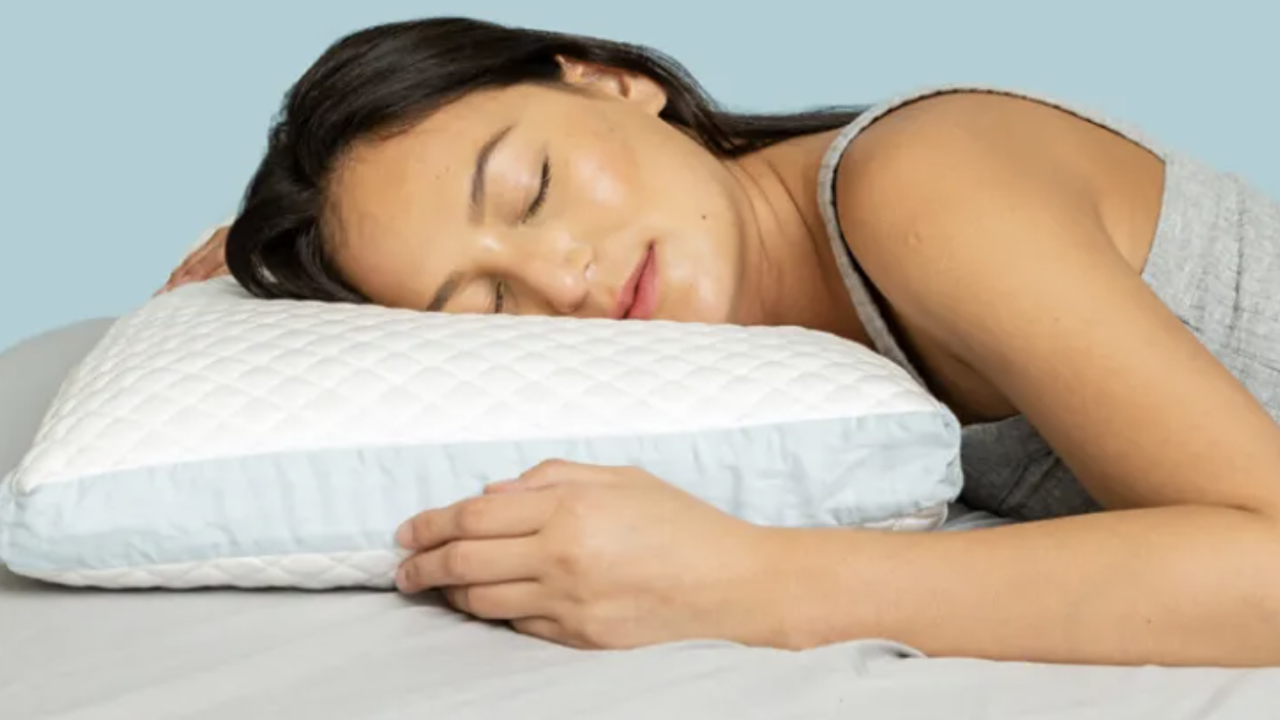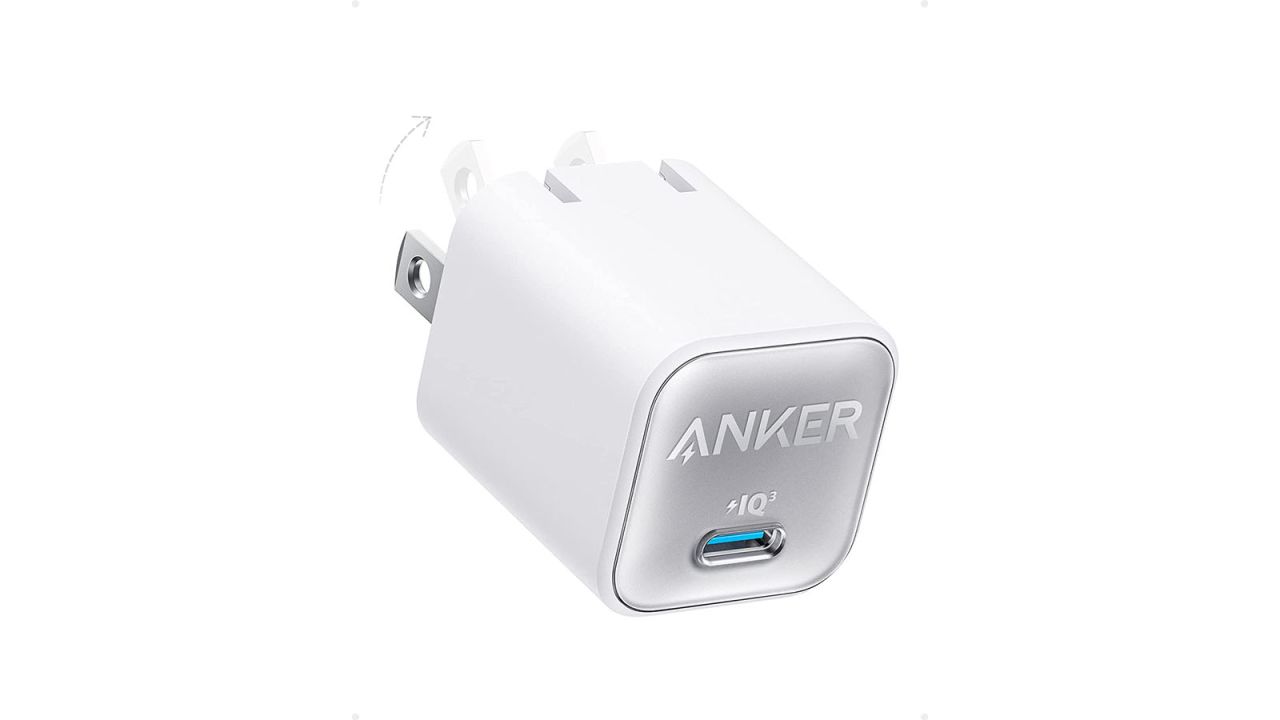While surely you love the people in your life, you may not love their sleeping habits, especially if you have a bed partner whose loud snoring keeps you awake at night. Despite what Saturday morning cartoons might want you to think, loud, honk-shoo snoring is not a sign of deep, restful sleep. In fact, for many people, snoring can be a warning sign that there are bigger health issues waiting to be addressed.
We asked sleep experts to help break down what causes snoring, how it affects your health and what you can do to try to fix it.
Causes of snoring
To understand snoring, we first have to understand breathing. Dr. Emerson Wickwire, a board member for the American Academy of Sleep Medicine and section head of sleep medicine at the University of Maryland School of Medicine, walked us through our body’s four-step breathing cycle.
“First, the brain sends a signal to the diaphragm. Second, the diaphragm contracts. Third, air is brought into the lungs. And fourth, the heart pumps oxygen-rich blood to the brain and other vital organs,” Wickwire explains.
Throughout the day, the body repeats this cycle as we work, chat, exercise and complete our tasks, Wickwire explains. When we sleep, the muscles and the tissues in the upper airway (i.e., the nose, sinuses, mouth and upper throat) relax and make the airway smaller. This means that during sleep, the same amount of air our body uses during the day now has a much smaller space to move through. As the air moves through, it causes the relaxed tissues to vibrate.
“It’s almost like if you put your hand in front of a really powerful fan, you hear and feel the noise,” Wickwire says. “The tissues in your upper airway are vibrating, and that vibration is what we call snoring.”
Health impacts of snoring
Like a lot of other health issues, snoring exists on a spectrum. This can range anywhere from mild snoring that is so soft and light that your bed partner might not even notice any noise to severe, sleep-disrupting snoring often associated with sleep disorders such as obstructive sleep apnea (OSA).
Dr. Kevin Postol, a certified sleep dentist and president-elect of the American Academy of Dental Sleep Medicine, says that if you’re getting seven to nine hours of sleep per night, without tossing and turning or noticing other health issues, then your mild snoring is likely not a cause for major concern. Keep in mind that a louder-sounding snore also doesn’t automatically mean your health is in worse shape, though it might mean your sleep partner will be more direct about telling you to find a fix.

According to Postol, you should be concerned when your snoring instead sounds like gasping for air; you feel chest pains; you experience increased bouts of anxiety and depression; or you have unresolved high blood pressure, memory issues or excessive daytime sleepiness. Experiencing any of these symptoms is a good enough reason to talk to your physician about conducting a sleep study.
“There’s a lot of people who won’t go and be evaluated because they think all sleep studies are done in a lab,” Postol says. “Most sleep studies nowadays are done at home, in the privacy of your bedrooms [and] are very simple, easy to do.”
The results of the sleep study can help determine if your snoring could be connected to other conditions like mild sleep apnea or a more severe sleep disorder like OSA, where the airway is even more narrow, causing snorting, choking or gasping during the night.
Postol says many patients don’t recognize how other factors of their health are related to their sleep apnea. The National Heart, Lung, and Blood Institute reports that “sleep apnea may raise the risk of high blood pressure, diabetes, heart disease, and stroke.” Other studies have also highlighted links between OSA and the development of conditions such as Alzheimer’s disease and depression.
“There’s too many patients who end up not going to see a health care professional until it’s too late,” Postol says, “which ends up being a big factor in their longevity, in their life, because just like eating and drinking are important, sleep is just as important.”
Treatments for snoring
There’s no one-size-fits-all solution to snoring.
Some snoring can be improved by making lifestyle changes like losing weight, getting regular exercise, quitting smoking or avoiding alcohol before bed, Postol explains. You could also try sleeping on your side or with your head more elevated to help keep your airways open. But if at-home remedies still aren’t helping, then it’s time to seek professional help.
37 million Americans say they snore regularly, according to Yale Medicine, and in general, many people find talking about and admitting to snoring embarrassing. Women often underreport their snoring habits, making it more likely that their sleep disorders are overlooked, even though instances of sleep apnea can occur during pregnancy or menopause.

Postol says some patients hesitate to bring up snoring issues to their doctors, fearing that they may be told to wear a continuous positive airway passage (CPAP) machine, which many people find loud and uncomfortable to sleep with.
Luckily, qualified sleep dentists such as Postol can often help patients alleviate snoring and sleep apnea by fitting them for an oral appliance, a device similar in shape to a mouthguard that helps keep the jaw forward and the airways open while you sleep. While similar oral products are available at drugstores, Postol warns that it’s better to get a professionally fitted piece that won’t risk grinding or moving your teeth around.
The bottom line is if you’re thinking about your snoring — how it’s affecting your life and overall health — that’s enough of a sign to talk to your doctor. Advocating for your health is the first step in finding a snoring solution that will get you (and your partner) better sleep.
“When people are sleeping better, particularly if they have sleep disorders, when these are treated, everything about life gets better,” Wickwire says.
But if you’re not ready to pencil in an appointment quite yet, here are a few expert-recommended snoring aids you can try at home.
At-home snoring aids
Some snoring can be related to colds or allergies that cause blocks in the nasal passages. If this sounds more like you, Postol says you can try an over-the-counter nose spray like Flonase to see if you find some relief.
Similarly, nasal strips can help open the nasal passages for better airflow. They’re not a permanent fix, especially for those with OSA, but for mild cases of snoring, they may bring you and your bed partner more peace at night.
A new pillow or new pillow setup might be the easiest way to try to alleviate snoring. Especially for back sleepers, trying a new sleeping position that keeps your head elevated and airways more open — or sleeping on your side — may reduce the severity of your snoring. If you need to upgrade your current rotation of pillows, we like this option from Pluto Pillow, which was our overall pick for best pillow.
If standard bed pillows aren’t helping, Postol also recommends trying a wedge pillow to help keep the head and neck elevated while you sleep. This wedge pillow won’t move around while you sleep to help ensure you always stay a little more upright.
Postol says more and more people have begun asking about mouth taping as a solution to snoring. He advises that before you jump to grab any tape, you should make sure you have good nasal airflow. “I always remind people, but about 80% of our air should be coming through our nose and about 20% through our mouth,” Postol says. This gentle Soma mouth tape will help keep your lips closed but can still be easily peeled off if you need to open your mouth. Keep in mind, though, that mouth taping won’t work great for snorers with facial hair, so they’ll need to look for other options.
If you live or sleep alone, you may not even know whether you snore. While you may be waking up feeling well rested and symptom-free, maybe another part of you is just curious about what your body gets up to during the night. You can download this SnoreLab app for free, which will monitor and record your snoring through the night. Wickwire cautions that most sleep apps are not medical grade, so this app won’t be able to diagnose your condition, but you’ll at least be able to collect some information on what your sleep sounds like.
Sleeping should be a positive experience for both bed partners, but noisy snoring can have some couples considering a "sleep divorce."?
“There's no right answer for any particular couple,” Wickwire says. “If using earplugs or a white noise generator solves [or] reduces distress from the affected bed partner, that's a great place to start.” Before you consider separate bedrooms, you might try this reviewer-loved white noise machine, which uses a real fan to help lull you to sleep.
Tried and true, earplugs are another budget-friendly option that can help dampen and block irritating snoring sounds.




























